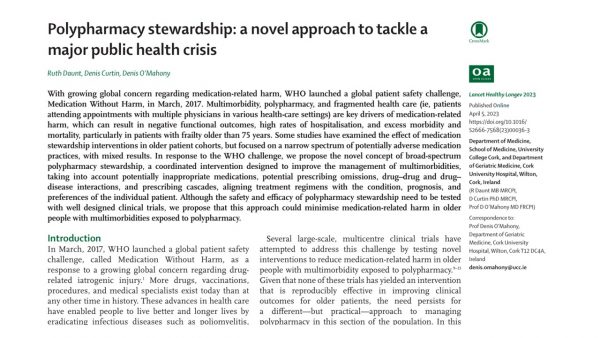Each specialist treats a person or patient in her/his field of competence to the best of current knowledge. Well, marketing of pharmaceutical products is also a field of special competence. Medical doctors and pharmacists are largely competent intermediaries between the world of medical and pharmaceutical research, commercial interests and patients. As persons age, so-called multimorbidity is creeping into the daily life of many persons. After a certain age (75+), depending on country of residence to some extent, we all become patients. Although the basic problem has been known since the phenomenal rise of the pharmaceutical industry, little research is devoted to patients receiving multiple treatments with medical prescriptions from several specialists. In addition, we know there is a rather severe issue with compliance to prescriptions, for example, taking antibiotics for the whole prescribed period, to name just one. The interactions between several prescriptions and molecules administered to patients are very difficult to monitor and scientific tests of those are expensive and no pharmaceutical company really has an interest in such studies that might further add to the already long list of potential side effects. However, the study published by Daunt et al. (2023) reiterates the warnings that treatment of multimorbidity can have unwanted side-effects we do not really know about. General practitioners will have to take on the role for medical stewardship for their patients. Monitoring a patient’s digestion of a combination of medications becomes a prime role as of the age of 75, the paper specifies. Whereas a common believe tells us, taking more, will help more, the “daunting” truth might be, less can be more. (Source: Daunt, R., Curtin, D., & O’Mahony, D. (2023). Polypharmacy stewardship: A novel approach to tackle a major public health crisis. The Lancet Healthy Longevity. https://doi.org/10.1016/S2666-7568(23)00036-3. 

